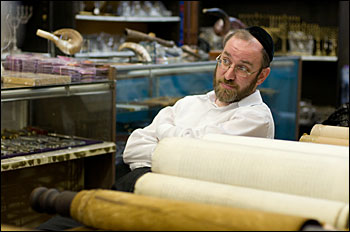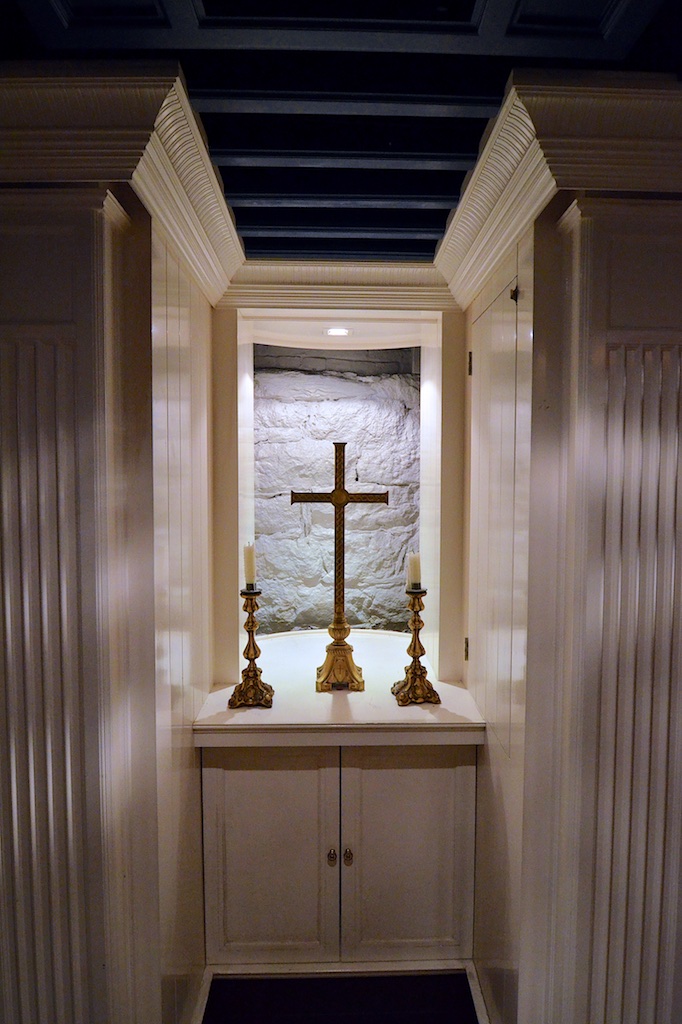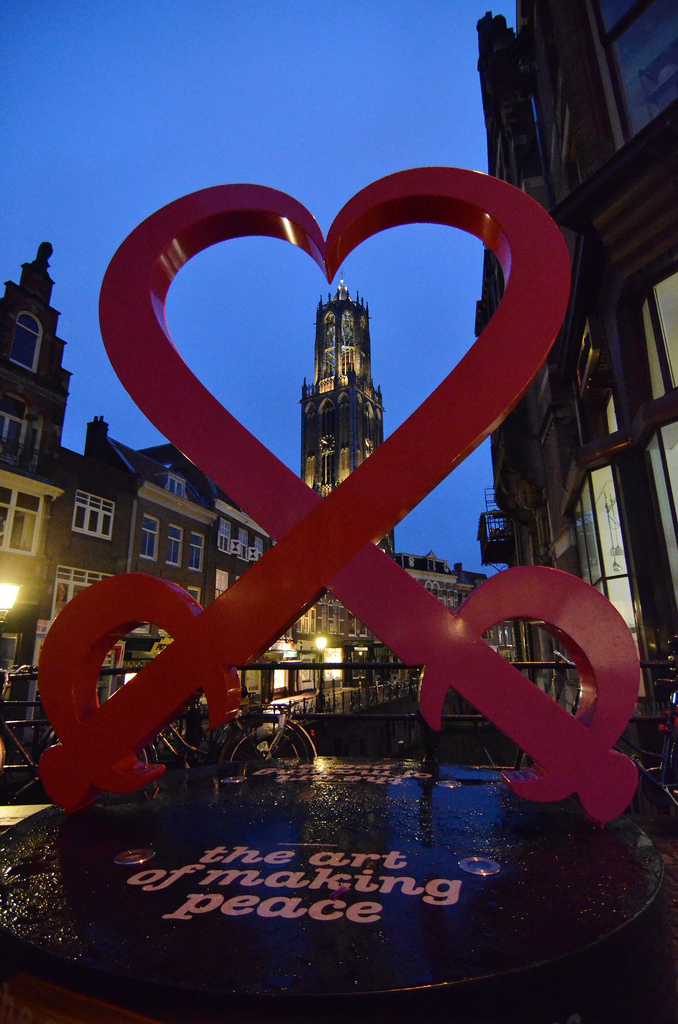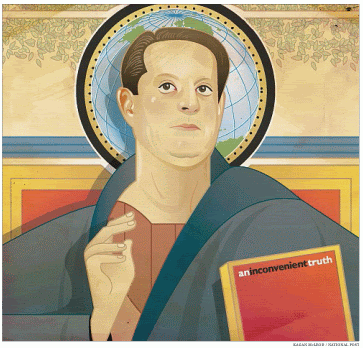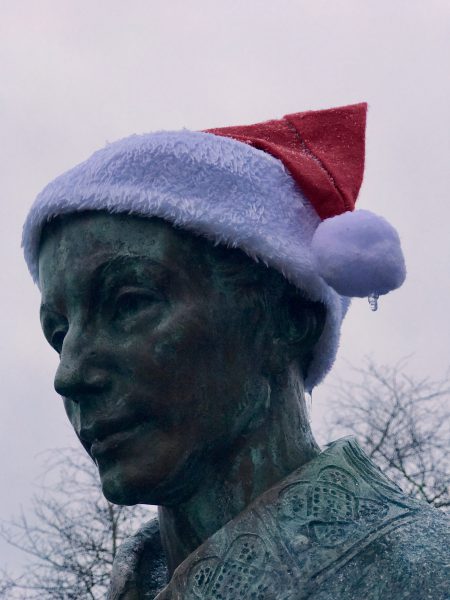 The audio of the sermon is available here. It has some extra commentary and possibly worth listening to.
The audio of the sermon is available here. It has some extra commentary and possibly worth listening to.
Nativity of the Lord – Proper III (December 25, 2016)
- First reading
- Isaiah 52:7-10
- Psalm
- Psalm 98
- Second reading
- Hebrews 1:1-4, (5-12)
- Gospel
- John 1:1-14
וַיֹּאמֶר אֱלֹהִים יְהִי אוֹר וַיְהִי־אוֹר׃ And God said, “Let there be light.” And there was light.
I wish you all a warm and happy Christmas Day! It is a brisk morning and one that I hope has been filled with joy. It is not always so, of course. The holidays are actually some of our busiest and most fretful times. Adults doing last minute shopping for gifts and meals to be prepared; many have traveled a long way to be with family; and for the children it has been perhaps the longest day of the year, matched only by how long last night seemed to last! Of course some of us will also be remembering our loved ones who cannot be with us. The expectation and anxiety that we all have is palpable.
It is curious to think about who was expecting what on that night. Mary, a young girl, her first pregnancy and birth, do doubt all the encouragement of the angels would bring her little solace when the contractions came. Joseph, well I am sure was on edge as well. Their world was now turned upside down; having children will do that to you, whether they are the savior of the world or not.
So we may think of that first Christmas with stars and angels, anthems and wise-men, but the actual events were much less grand and festive. So while today our stores and radios, bumper stickers and cable talk shows proclaim “the reason for the season,” remember the angels came in secret to Mary and Joseph, there were few shepherds and those that were there were terrified, and many ignored the prophets or, when they paid attention to them, they feared their words.
As we have discussed in previous Sundays, most Jews of the day had some idea of the messiah, the anointed one from God who would somehow restore God’s order. They disagreed, however, with exactly what that meant. Most thought or hoped he would be a king, a warrior who would drive out the Romans and the corrupt leaders of the Temple and would restore the Davidic dynasty. The community at Qumran where the Dead Sea Scrolls were discovered expected two messiahs, one from David’s line and another of the line of the High Priest Aaron to restore the Temple to its pure line of leadership. No one expected a baby born of a normal, middle-class tradesman and his wife.
All of that being said, the world that Jesus was born into was not very different from our own. There were corrupt political and religious leaders; there was oppression by the authorities; there was poverty, sickness, and suffering. At our best days we can ignore how little the world has changed, but in truth it really hasn’t.
This is the world into which Jesus was born. It was not the world that he and the Father created.
וַיֹּאמֶר אֱלֹהִים יְהִי אוֹר וַיְהִי־אוֹר׃ And God said, “Let there be light.” And there was light.
This world was created by God through his Word (the Word that tonight we celebrate having become flesh) and when he had created it he saw that it was good. But of the many gifts he gave us perhaps the greatest was the ability to love him freely and, correspondingly, to disobey him. As we pushed God away we fractured this world and pain and suffering entered in.
The birth of Jesus marks the beginning of God’s new creation. Just as God had walked in the Garden with Adam and Eve, now he walks among us again, this time as a man, as the New Adam who brings light and life to the world.
And this becoming a man is perhaps the most challenging and fundamental of Christian beliefs. The birth of Jesus is nothing less than the incarnation of God. The term “incarnation” is understandable enough today thanks to the flourishing of Mexican restaurants. Carne a sada, chile con carne, and so on. Carne is “the flesh.” “Incarnation” is the “indwelling” of God in the flesh. Jesus is “Emmanuel,” God with us.
This notion that somehow Jesus was both fully God and fully man, that the child Mary gave birth to was nothing less than the Son of God, has challenged us all over the millennia. Theologians and thinkers far better than I have wrestled with this notion but on this day when we remember that moment of the incarnation I would like to offer some suggestions as to why God became flesh and dwelt among us.
What we cannot lose sight of is that this is a mystery. I mean that in the original sense of the term; the incarnation is not a mystery like an Agatha Christie mystery where we are eventually able to figure out how something happened, rather it is something that is only knowable through revelation. So while we may not be able to understand how God could be contained within human form I do think we can each come to understand why and what it means for us.
First and foremost the coming of the messiah was foretold by the Israelite prophets. Our reading from Isaiah tonight came from a time when the nation of Judah was in great peril of invasion. And yet in the midst of that uncertainty the prophet Isaiah declared that God would establish his eternal kingdom that would bring endless peace, justice, and righteousness. The advent of Jesus declared that God’s promises have been kept and that his kingdom was near.
Yet God becoming human is not just a theological concept or words uttered by religious men long dead. The very notion of God’s humanity is about bringing to humanity those things that words cannot express.
The fact that Jesus lived and walked among us, that he had friends and followers, that he was a child growing up with hunger and sleeplessness, weariness and pain, temptations and troubles conveys to us the relational aspect of God’s love. He is not only transcendent, looking down on us from afar, but he is immanent, here with us, feeling and knowing what life is like for us human creatures.
Jesus’ presence on earth provides us with God’s living Law, the prime example for us to emulate. Think about this as we go through the next year. Listen to the Gospel readings each Sunday, read them on your own, and consider what example it is that Jesus has left for us, not just in his words, but in his actions. Jesus demonstrated what it means to love one’s neighbor as oneself as he sat at meals with those whom others would not even let in the door. He touched and healed those whom others would not even look upon. He fed the hungry and directed those who followed him to offer not just their coats, but even their hoodies to those who needed clothes. (Well, the equivalent of hoodies.)
The day-to-day life of Jesus as seen in the Gospels shows us also the companion that he was to his disciples and still is to those who follow him. He lived, slept, and ate with those men and women. He cried with them and held them.
In other words, Jesus lived in this broken world, endured it even as we endured it, and loved us as he did so.
Again, this is our example to follow, to hold and comfort those around us and to receive their comfort to us. Most of all, to simply be with them in their joy and grief, love and anger, hunger and feast. Jesus was their companion and he remains our companion even now. The presence of the Holy Spirit is never absent. Remember, Jesus promised us that if we love him and keep his commandments he would send “another Comforter [Advocate],” that is the Holy Spirit (John 14.16) to remain with us always. The physical presence of Jesus presaged the eternal presence of the spirit dwelling in all those who call upon his name. We will never walk alone because Jesus walked the earth.
I have only been to Israel once and it was for a very short time; I barely left Jerusalem. Many Christians told me how amazing it was to know that they were in the very places where Jesus walked. I have to admit that I did not find that striking, at least not in the sense that he was in “this” or “that” place. What humbles me is the fact that Jesus was here on this earth. Whether Bethlehem or Jerusalem or State College PA or Nashville Tennessee, he was here just like me, just like you. This is why the baby was born, why the Word became flesh, to show us what it really means to be human, created in the image of God, and to once again make us at one with God.
And while we are not God we can love, care, and share as he did. Most importantly, we can share his love to the entire world. His birth was the light struck in the darkness and, like one candle lighting another, his light is passed on to each one of us without diminishing its own light in the least.
“What has come into being in him was life, and the life was the light of all people. The light shines in the darkness, and the darkness did not overcome it.”
Amen. ✠


